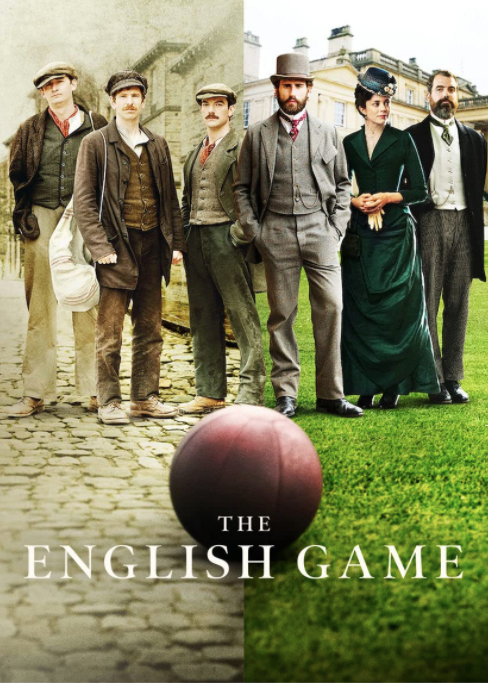
My wife and I binge-watched The English Game on Netflix. We're not football aka soccer (in the U.S.) fans. In fact, the only team we care about are the New York Yankees. But we really enjoyed The English Game. Although it's almost completely unlike Friday Night Lights, it's an another example of a sporting story done so well, and touching on so many social and interpersonal issues, that it's well worth watching even if professional sports are not high up on your entertainment list.
The English Game was written by Downton Abbey's Julian Fellowes. That's a reason right there that the show is irresistible. Fellowes has a keen eye for local historical color and speech, ranging from the wines and port that are poured at dinner tables to a smoking train with garrulous passengers wending its way through the countryside. And he's deft at handling the class conflicts which are the very lifeblood of Britain.
In the late 1870s and 1880s, these class conflicts shot through the emerging sport of football. The game was invented by the upper class, who devised the rules and played the game for the pure love of it. The workingmen, in the surge of the Industrial Revolution, also loved the game, and brought to it some new strategies from Scotland, in the person of Fergus Suter, a real football player in our real history, who plays a major role in the series. His opposite is Arthur Kinnaird, also a real person, whose father was a lord. But he has something in common with Fergus in their shared devotion to the game, and maybe in their ultimate response to the most unsettling element in this new iconic culture: those who would play the game for not just love but money.
I didn't know most of the acting talent in The English Game, but they all did a fine job. I did know Charlotte Hope as Catherine in The Spanish Princess, and believe it or not she plays a very similar role in The English Game, but I won't tell you exactly what or how it's resolved. I will tell you that The English Game is well worth your viewing, not just for the entertainment but the enduring social issues it adeptly addresses.

No comments:
Post a Comment